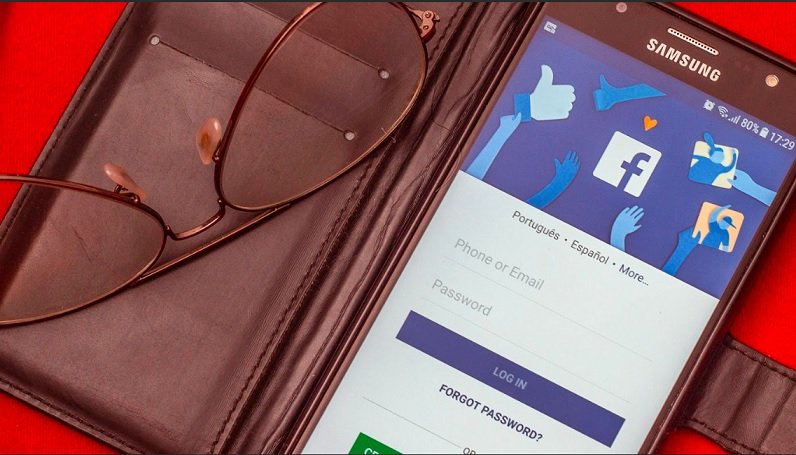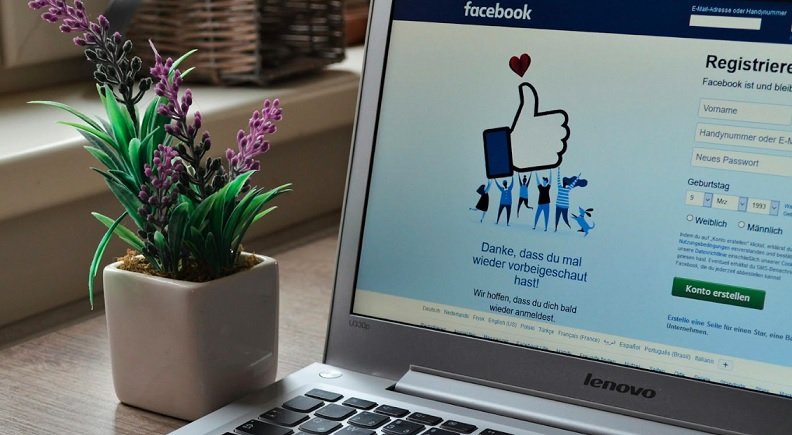I’ve been buying and selling on Facebook Marketplace for years, and honestly, it’s been a mixed bag. Sometimes I score amazing deals on furniture for my apartment, but I’ve also had a few close calls with sketchy sellers. If you’re wondering whether Facebook Marketplace is safe, you’re not alone.
Facebook Marketplace has become incredibly popular for finding used items, second only to eBay according to recent stats. It’s super convenient – you just open Facebook, tap the Marketplace icon, and instantly see what people near you are selling.
The thing is, just like any online marketplace where strangers connect, there are real risks involved. I’ve had friends who paid for items they never received, and one who unknowingly bought a counterfeit phone. Yikes.
Experts I’ve spoken with say Facebook Marketplace safety really depends on how you use it. Meta reported about 4% of Facebook accounts were fake in late 2023, which doesn’t sound like much until you realize that’s millions of potential scammers.
What Makes Facebook Marketplace Risky?
The biggest problem with Facebook Marketplace is how easy it is for scammers to create fake profiles, trick people, and vanish. I once messaged someone about a coffee table, and their profile disappeared the next day after several people reported them for collecting deposits on furniture they didn’t own.
Think about it – you’re often dealing with strangers, sometimes at their homes or yours. Many sellers post fake listings or try sneaky tactics to get your personal info. I’ve seen listings for brand new iPhones at half price (total scam) and “sellers” who suddenly need your banking info for some bizarre reason.
The platform tries to keep things safe, but with millions of transactions happening, they can’t catch everything. This is partly why many serious sellers eventually get a Facebook ad accounts to look more legitimate and reach targeted customers. If you’re planning to sell regularly, services like Uproas.io offer options for businesses looking to establish a more professional presence beyond just Marketplace listings.
For casual buyers and sellers though, the main concerns remain. You’re interacting with people you don’t know, often with limited verification, and that creates inherent risks that require caution.
Financial Loss from Scams
My neighbor lost $300 last month trying to buy concert tickets through Marketplace. The seller had a convincing profile but disappeared after payment. According to Tech Jury, Facebook Marketplace has over a billion users, and scammers have targeted one in six of them. That’s a shocking number.
The most frequent scams I’ve encountered include sellers who never ship after payment, items arriving completely different from their photos (like the “leather” jacket I got that was actually plastic), and elaborate fake payment schemes.
Fake Payments Target Sellers
When I sold my old laptop, a buyer sent me a screenshot “proving” they paid me. Had I not checked my actual account balance before handing it over, I would’ve given away a $700 laptop for free. Sellers face these tricks constantly.
The worst part? Some scammers use payment apps that show money arriving, but they cancel the transaction minutes after walking away with your item. A friend who sells vintage clothing lost three designer pieces this way before she learned to wait for payments to fully clear.
Bait-and-Switch Tactics
Just last week, I saw an almost-new KitchenAid mixer listed for $75 (they normally sell for $300+ used). When I messaged the seller, suddenly it wasn’t available “but they had a similar one” for $250. Classic bait-and-switch.
The frustrating thing is they hook you with an amazing deal, then either raise the price dramatically or try selling you something completely different and usually inferior. I’ve learned that when a deal seems impossibly good, it probably is.
How to Stay Safe When Buying on Facebook Marketplace

After some sketchy experiences, I’ve developed my own safety system for buying on Marketplace. These tricks have saved me from scams multiple times.
Facebook does provide some built-in protections, but ultimately your safety is in your hands. These guidelines have kept me scam-free for the past year.
1. Check Seller Profiles and Reviews
Before messaging any seller, I thoroughly check their profile. New accounts with stock photos or profiles with zero friends raise immediate red flags for me. Last month, I nearly bought concert tickets from someone whose account was created just two days earlier – major warning sign!
I look for profiles with a reasonable friend count, a history of normal posts, and positive reviews from previous buyers. One time I noticed a seller had three different people complaining about items never being shipped – I dodged that bullet quickly.
Trust your gut feeling about profiles. If something seems off, it probably is.
2. Meet in Public Places
I never meet sellers at their homes unless I’m buying something massive like a couch. For electronics, clothing, or anything portable, I suggest meeting at the local Starbucks or the parking lot of our police station.
Last year, a seller insisted I come to his apartment in a sketchy area to see a camera lens. I suggested the mall food court instead, and he immediately ghosted me. Bullet dodged!
Public meetings protect everyone involved. I’ve even made this a firm rule when selling my own items, and legitimate buyers never have a problem with it.
3. Bring a Friend When Meeting Sellers
My roommate and I have a buddy system for Marketplace pickups. When she bought a dresser last month, I went along and waited in the car. Just having someone know where you are adds a huge safety layer.
When I had to pick up a bookshelf alone, I shared my live location with two friends and called one while walking to the seller’s apartment. Facebook also has a feature to share meetup plans with friends which I use religiously.
4. Inspect Items Before Paying
I once drove 30 minutes for a “like-new” coffee maker that turned out to have a cracked water reservoir. Because I checked it thoroughly before handing over cash, I saved myself from an expensive disappointment.
Take your time examining everything. Test electronics, open drawers on furniture, check clothing for stains or tears. Most sellers understand and expect this, and the honest ones won’t rush you.
Tips for Selling Safely on Facebook Marketplace

After selling over 50 items on Marketplace, I’ve learned that sellers need different safety strategies than buyers. These practices have kept my selling experiences smooth and scam-free.
Being careful about who you communicate with and how you arrange meetings can make all the difference between a successful sale and a scam.
1. Review Buyer Profiles
When someone messages about my listings, I immediately check their profile just like I would a seller’s. Last month, someone with a completely blank profile wanted to buy my iPad without seeing it first – major red flag!
I pay attention to how they communicate too. Messages that could apply to any item (“Is this still available?” followed immediately by “I’ll take it sight unseen”) often come from scammers. Legitimate buyers typically ask specific questions about the item.
2. Don’t Accept Overpayments
A buyer once offered to pay $50 over my asking price for a desk “because I’ve been looking everywhere for this style.” Then came the catch – they needed to pay with a check for a higher amount, and wanted me to refund the difference. Classic scam!
This overpayment trick has been around forever, but people still fall for it. If anyone offers more than your asking price for any reason, your scam alarm should sound immediately.
3. Secure Payment First
I never hand over items until payment is confirmed in my account. For expensive things, I only accept cash or watch the PayPal payment complete and appear in my balance before the buyer leaves with the item.
When I sold my old iPhone, a buyer showed me a fake payment confirmation screen that looked convincingly like Venmo. I insisted on checking my actual account, not just looking at his phone screen, and suddenly he “needed to make a quick call” and disappeared.
What To Do If You Get Scammed on Facebook Marketplace
Despite all precautions, scams can still happen to anyone. My cousin got caught in a rental scam last year and felt too embarrassed to report it at first, which only helps scammers continue their schemes.
Taking quick action might not always recover your money, but it helps protect others and sometimes leads to resolution.
1. Report to Facebook
When I encountered a seller trying to get me to pay outside the platform with a sketchy payment link, I reported them immediately. The process was simple – I clicked their profile, hit the three dots, selected “Report,” and followed the prompts.
Reporting might seem pointless sometimes, but Facebook does review these reports and often removes scammers before they can target others. My report actually got a response within 48 hours, and the profile disappeared shortly after.
2. File a Police Report
A friend lost $400 buying a non-existent laptop and filed a police report with all the conversation screenshots. While she didn’t get her money back, police told her these reports help them identify patterns and sometimes build cases against repeat offenders.
Bring all your evidence – messages, listing details, payment receipts – when filing. The more information you provide, the better chance authorities have of connecting your case to others.
3. Contact the FBI
For significant scams, especially those crossing state lines, the FBI’s Internet Crime Complaint Center (IC3) wants to know. When my uncle fell for a car deposit scam, his IC3 report was combined with others targeting the same scammer group.
These federal agencies track patterns in online crime, and individual reports help build the bigger picture they need to pursue organized scammers.
Frequently Asked Questions
1. Is Facebook Marketplace completely safe?
From my experience, no online marketplace is completely risk-free. Facebook Marketplace has definite dangers, but following safety practices dramatically reduces your chances of being scammed.
2. Should I pay before seeing an item?
Never. I’ve made this mistake once and regretted it immediately. Always inspect items in person before paying unless using Facebook’s secure shipping option.
3. What payment methods are safest?
Cash is king for in-person exchanges. For shipping, I stick with PayPal or Meta Pay which offer buyer protection. I avoid wire transfers, gift cards, and cryptocurrency completely – they’re scammer favorites.
4. How can I tell if a listing is fake?
Look for prices that seem too low, stock photos or images with watermarks, vague descriptions, and new seller profiles. I once spotted a scam listing using photos stolen from Amazon with the watermark still visible!
5. What should I do if someone asks for personal information?
Run! Never share your address (except for legitimate shipping), banking details, or verification codes. Report users who ask for this information immediately.
Final Thoughts: Balancing Risk and Reward
After three years of regular buying and selling on Facebook Marketplace, I’ve found it can be an incredible resource when used carefully. I’ve furnished most of my apartment, sold items I no longer needed, and even found my favorite vintage record player there.
The vast majority of my transactions (probably 90%) have gone perfectly smoothly because I follow these safety guidelines religiously. The platform isn’t inherently dangerous – it’s how you use it that matters.
By doing your homework on profiles, meeting in safe places, using secure payment methods, and trusting your instincts, Facebook Marketplace can be a valuable tool rather than a source of stress. Just remember that no deal, no matter how amazing, is worth compromising your safety.
